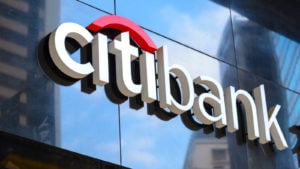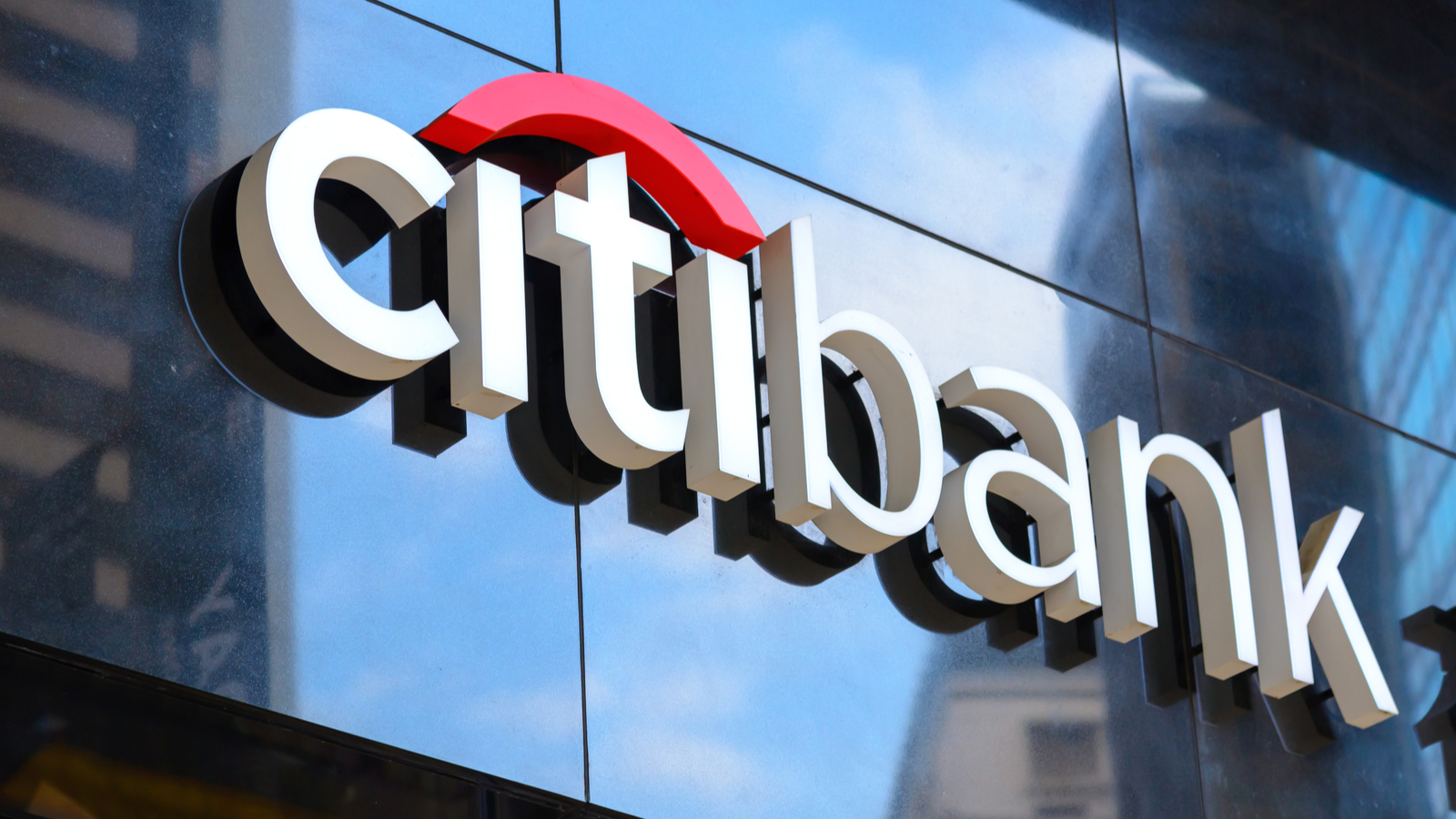On a day when JPMorgan (NYSE:JPM) reported blowout second quarter earnings and Wells Fargo (NYSE:WFC) reported dismal second quarter numbers, Citigroup (NYSE:C) split the difference and reported mixed numbers that were still broadly good enough to warrant buying Citigroup stock to play a second-half of 2020 U.S. economic recovery.

Big picture, Citigroup beat revenue and profit estimates, boosted by strong trading and investment banking operations, but also hindered by weak consumer banking results and record low interest rates.
Citigroup stock traded lower on the results, but this near-team weakness doesn’t mean much.
Zooming out, Citigroup appears well positioned to capitalize on rebounding U.S. economic activity in the second-half of 2020.
The company’s growth trends should meaningfully improve. Citigroup stock — which is undervalued today — could rise by quite a bit. Here’s a deeper look at why.
Citigroup’s Earnings Were Good Enough
Citigroup’s second quarter earnings report wasn’t amazing. It wasn’t awful, either. Instead, it was simply good enough, and what should be expected from a bank doing just fine in a tough environment.
Overall revenues rose 5% year-over-year, paced mostly by a 37% rise in investment banking revenues and 48% growth in trading revenues.
Those huge upticks make complete sense. Financial markets have been very active over the past three months. As financial market activity has perked up, Citigroup has turned that activity into money-generating opportunities for the bank.
What also makes sense:
- Consumer banking revenues dropped 7% year-over-year on the back of weak consumer spending trends;
- Net interest income also dropped big year-over-year thanks to record low interest rates; and
- The bank significantly built its reserves in the quarter in order to protect against Covid-19 inspired economic volatility in the second-half of 2020.
Overall then, Citigroup’s earnings were exactly as expected.
Strong financial market activity drove strength in the trading and investment banking businesses, while weak real economy fundamentals weighed on the consumer banking business and net interest income.
Improving Economic Activity
Because Citigroup’s earnings were exactly what you would expect from a bank in today’s challenging environment, it’s reasonable to say that Citigroup’s numbers and growth trends will meaningfully improve over the next 6 to 12 months as U.S. economic activity recovers.
Yes, right now we are going in reverse in terms of the economic recovery. New York is essentially closing its borders. California, Texas, Florida and many other states are rolling back reopening measures.
Still, these business shutdowns and mobility restrictions are temporary. A vaccine is coming. And when it does arrive, many of these restrictions will become a thing of the past.
Plus, America is only doing a better job at balancing virus mitigation efforts with attempts to maintain social and economic normalcy. For example, while California has shut down indoor restaurant operations, many cities in the state are now turning streets and parking lots into outdoor seating for restaurants. At the same time, retail shops and salons are increasingly moving their operations outside too.
Mask wearing is also becoming more ubiquitous, and that should prove to be a leading indicator for decreasing Covid-19 spread and easing economic restrictions.
So throughout the back-half of 2020, I expect U.S. consumers, businesses and legislators alike to all get better at this balancing act. As they do, businesses will be able to conduct business on a quasi-normal basis, U.S. consumer spending trends will perk up and interest rates will head higher to reflect recovering economic activity… all while Covid-19 spread and negative impacts are mitigated.
In other words, the U.S. economy will recover over the next several quarters. As goes the U.S. economy, so go U.S. banks. Citigroup will not prove to be an exception to this trend.
Citigroup Stock to $65?
My numbers suggest that Citigroup stock can power to $65 over the next 6 to 12 months.
Citigroup did about $8 in earnings per share in 2019. Fiscal 2020 earnings will get obliterated by weak economic fundamentals, record low interest rates and huge reserve build.
But, as economic fundamentals improve over the next 6+ months, today’s record low interest rates will creep higher and banks will reduce their reserves. Citigroup’s earnings should rebound meaningfully in 2021.
The Street expects Citigroup’s earnings per share to rebound to above $6 by 2021, implying that the bank recoups 75% of its 2019 earnings by 2021.
That seems realistic to me. I actually think, on the back of improving economic activity in the second-half of 2020, Citigroup’s fiscal 2021 earnings per share estimates will trend higher over the next 6 months. I suspect earnings per share estimates will finish the year around $6.50.
Citigroup stock normally trades at 10-times forward earnings.
That normal multiple on $6.50 in 2021 earnings per share estimates implies a 2020 price target for Citigroup stock of $65.
Bottom Line on C Stock
Citigroup’s earnings report was good enough to say that Citigroup stock will go as the U.S. economy goes.
When the U.S. economy is doing well, Citigroup’s numbers are good, and Citigroup stock powers higher. Conversely, when the U.S. economy is struggling, Citigroup’s numbers aren’t so good, and Citigroup stock struggles for gains.
Over the next 6 to 12 months, the U.S. economy will recover. As it does, Citigroup’s numbers will improve, and Citigroup stock will rebound to $65.
Luke Lango is a Markets Analyst for InvestorPlace. He has been professionally analyzing stocks for several years, previously working at various hedge funds and currently running his own investment fund in San Diego. A Caltech graduate, Luke has consistently been rated one of the world’s top stock pickers by various other analysts and platforms, and has developed a reputation for leveraging his technology background to identify growth stocks that deliver outstanding returns. Luke is also the founder of Fantastic, a social discovery company backed by an LA-based internet venture firm. As of this writing, he did not hold a position in any of the aforementioned securities.
Luke Lango is a Markets Analyst for InvestorPlace. He has been professionally analyzing stocks for several years, previously working at various hedge funds and currently running his own investment fund in San Diego. A Caltech graduate, Luke has consistently been rated one of the world’s top stock pickers by various other analysts and platforms, and has developed a reputation for leveraging his technology background to identify growth stocks that deliver outstanding returns. Luke is also the founder of Fantastic, a social discovery company backed by an LA-based internet venture firm. As of this writing, he did not hold a position in any of the aforementioned securities.
Luke Lango is a Markets Analyst for InvestorPlace. He has been professionally analyzing stocks for several years, previously working at various hedge funds and currently running his own investment fund in San Diego. A Caltech graduate, Luke has consistently been rated one of the world’s top stock pickers by various other analysts and platforms, and has developed a reputation for leveraging his technology background to identify growth stocks that deliver outstanding returns. Luke is also the founder of Fantastic, a social discovery company backed by an LA-based internet venture firm. As of this writing, he did not hold a position in any of the aforementioned securities.
